2024/25 Events
PPV #44: RECONSTRUCTION//DESTRUCTION: The Dual Reality of Ukrainian Volunteering
When: 01 November 2024, 6:00 pm–8:00 pm
Where: IAS Common Ground, G17, Ground floor, Wilkins building
Ten years after Russia began its war on Ukraine, and three years after it launched its full-scale invasion, the Ukrainian war effort remains heavily dependent on localised grassroots volunteer efforts. From the provision of food and shelter to internally displaced people, to the purchasing of cars and ammunition for the military, there is next to no aspect of Ukrainian society which is not now dependent on these networks.
Queer Art as an Instrument of Sociopolitical Change in Georgia
When: 15 October 2024, 5:00 pm–7:00 pm
Where: Online, Zoom
On 17 September 2024, Georgia’s parliament approved the ruling party’s legislative proposal that seeks to curtail the rights of queer people in the country. The package of anti-queer bills seeks to erase “LGBT propaganda” from public spaces, educational settings, and broadcasting. It also prohibits gender-affirming medical treatments and legal transitioning for trans people or adoptions of children by LGBTQI+ people. The timing is not insignificant: the next general election is scheduled for 26 October of this year, and the move is thus widely seen as Georgian Dream’s attempt to stoke up and exploit queerphobic sentiments to score political points.
2023/24 Events
PPV #41: Ukrainian Women Artists at War
When: 01 March 2024, 6:30 pm–8:30 pm
Where: Masaryk room, UCL School of Slavonic and East European Studies, 16 Taviton street
The Russian war in Ukraine directly affects culture by destroying museums and heritage. How does contemporary art resist and reflect such cruelty? What happens to contemporary Ukrainian art when it is caught up in war, and when it experiences constant, systematic trauma?In her report, Kateryna Iakovlenko will talk about a woman's view of war: how to be a woman artist, an artist and a mother, an artist engaged in volunteering? What other roles did the war prepare for women artists, and how did these women artists cope with these roles?
PPV #40 (PPV x SITUATING ARCHITECTURE): The ABC of the Projectariat
When: 05 February 2024, 6:00 pm–8:00 pm
Where: Room G.12 - BSA, Bartlett School of Architecture, 22 Gordon Street
Freelance artists, designers and architects do projects in order to make a living. Those mobile projectarians roam the art world, where enthusiasm is paired with exclusion, mobility with poverty, self-entrepreneurialism with anxiety. Writer, curator and activist Kuba Szreder will dissect the ups and downs of this unpredictable existence in an aleatoric lecture, performing a random selection of entries from his recently published book The ABC of the Projectariat (2021).
Surzhyk: A Transparent Double Mask
When: 12 January 2024, 6:30 pm–8:30 pm
Where: Masaryk room, UCL School of Slavonic and East European Studies, 16 Taviton street
This talk delves into the instruments used by Russian imperialism to undercut Ukrainian identity, through the prism of the complex and dynamic historical and contemporary relationship between language hybridisation and purification. It provides a brief history of the persecutions that led to the widespread appearance of the Russian language in Ukraine; and the consequent contempt (on the part of “pure” Ukrainian as well as Russian speakers) towards Surzhyk, the assimilated local idiom comprising elements of both Ukrainian and Russian.
The Will to Predict: Orchestrating the Future through Science
When: 08 December 2023, 5:00 pm–7:00 pm
Where: Masaryk room, UCL School of Slavonic and East European Studies, 16 Taviton street
In The Will to Predict, Eglė Rindzevičiūtė demonstrates how the logic of scientific expertise cannot be properly understood without knowing the conceptual and institutional history of scientific prediction. She notes that predictions of future population, economic growth, environmental change, and scientific and technological innovation have shaped much of twentieth and twenty-first-century politics and social life, as well as government policies. Today, such predictions are more necessary than ever as the world undergoes dramatic environmental, political, and technological change. But, she asks, what does it mean to predict scientifically? What are the limits of scientific prediction and what are its effects on governance, institutions, and society?
Does the Past have an Expiry Date? A conversation with Georgi Gospodinov and Angela Rodel
When: 01 December 2023, 6:30 pm–9:00 pm
Where: Gustave Tuck Lecture Theatre, Wilkins Building
The International Booker Prize winning author Georgi Gospodinov and his translator Angela Rodel will join UCL SSEES’s Uilleam Blacker, who was a member of the judging panel for the Prize, for a conversation about Georgi’s latest, multi-award-winning novel, Time Shelter, a brilliant, satirical look at memory, nostalgia and populist politics. The novel explores what happens when we lose our sense of the present and plunge into the past: in Switzerland, a clinic transports its patients back in time by meticulously recreating their childhood homes; at the same time, countries across Europe hold referendums on turning back the clock to their respective ‘golden ages’. But are there dangers lurking in such intense retrospection?
Václav Havel European Dialogues 2023
When: 12 October 2023, 5:30 pm–8:00 pm
Where: Masaryk room, UCL SSEES
2023 marks the 60th anniversary of The Garden Party, one of Havel’s most famous plays. Often understood as an Absurdist critique of modern bureaucracy, the play is also a tale about an ambitious young man who becomes a master of ‘gaming the system’. Havel’s protagonist Hugo thus embodies a paradox: he shows the extraordinary social pressure placed on people to conform to social expectations if they are to get ahead in life, but he simultaneously demonstrates the enormous creativity through which they find ways to ‘game the system’ and break the rules.
PPV x Vsesvit: Former West and New East (Away, Beyond and Sideways)
When: 22 September 2023, 7:00 pm–9:30 pm
Where: House of Annetta
Join this event with curator Aleksei Borisionok and artist and researcher Olia Sosnovskaya re-examining their essay “The Former West and the New East” (2017) which critically unpacked the notion of “New East” introduced by the UK-based media after the annexation of Crimea in 2014. Aleksei and Olia will address the narratives and representations of Eastern Europe and how the underlying power dynamics are underscored and re-actualised in the context of current Russia’s invasion of Ukraine supported by the Belarusian regime.
2022/23 Events
RE-PVC-U Material reuse and social engagement in architecture
When: 03 June 2023, 1pm
Where: Bartlett School of Architecture, Room 6.02 Gower Street
If we can scale up the use of reclaimed materials in architecture, what will it look like? Noble and natural materials such as stone and wood have been reused since time immemorial. What if the catalogue of reclaimed materials also included the synthetic and cheap ones? How can we tap into the social and environmental potential of material reuse? What is architecture’s answer to crises and what form does it take? Has the concept of comfort changed in recent years? If so, how should we be building and rebuilding to integrate that change?
OCCUPY PPV#07: Pain and its Politics
When: 26 May 2023, 6.00-8.00pm
Where: Mimose House, London
Please join the conversation with Dr Rachel Warriner on pain as a feminist method. Rachel will discuss the politics of representing suffering in feminist practice, focusing on artists whose work examines different kinds of hurt and injury. This conversation will explore questions of bodily empathy, the politics of emotions, and how a visual language of pain might act for feminism.
OCCUPY PPV#6: Art Histories from the Ukrainian South
When: 05 May 2023, 6.00-8.00pm
Where: Mimose House, London
Please join the conversation with curator Alexandra Tryanova on art histories from the Ukrainian South. Alexandra draws a speculative map of the region departing from artistic practices of different historical periods tied with the locality attempting to mark a unique northern Black Sea identity and matters that formed it.
The Cold War Capsule in London, 1968: Baltic designers, their hopes, fears, and visions
When: 27 April 2023, 6.00-8.00pm
Where: UCL SSEES
In August 1968, three young Baltic architects, Tadas Baginskas, Vello Asi and Ivars Strautmanis, met in London at the Earls Court Exhibition Centre. The Soviet Industry and Trade exhibition held there was one of the key international events organised by the USSR that year. Besides the main space-themed section with its undertones of Cold War rivalry, special attention was devoted to the technology and design of the occupied Soviet Baltic Republics. All three had separate pavilions, created by Baginskas, Asi and Strautmanis, respectively, and showcased the best examples of Lithuanian, Estonian, and Latvian domestic and industrial design.
OCCUPY PPV #03: (Anti)fascist Architecture
When: 26 November 2022, 6.00-8.00pm
Join us for this workshop on the ways to challenge the indoctrinated ways we think about architecture. This will be an online event.Fascist architecture has long been propped up and fetishized in the Global West. Architecture has always been a brutal weapon, so maybe it can be reframed as Antifascist? Who are the Antifascist architects history books have erased?
OCCUPY PPV #02: Does Pacifism Kill? Solidarity, Resistance, And Care
When: 28 October 2022, 6.00-8.00pm
On March 16th, Ukrainian feminists Darya Tsymbayuk and Iryna Zamuraieva addressed the issue of feminism and militarism, justifying feminists’ lobbying for air defence for Ukraine as a manifestation of protection and care rather than a manifestation of militarism.
On September 16th, an Iranian woman Mahsa Amini passed away in a hospital as a victim of police violence. Thousands of women around the globe joined protests against state tyranny, manifesting the need for human rights protection. Standing for their rights in the streets, the people of Iran are still not visible enough in the traditional international media platform. Resistance in Ukraine and Iran shows an extreme need for protection and solidarity, especially among feminist communities.
Rethinking the history of women fighting for their rights and addressing the topic of pacifism, activism, subjectivity, and care, this panel will problematise the peaceful movements against the power vertical.
Occupy PPV #01: Perverting the Power Vertical event platform on Politics and Aesthetics
When: 14 October 2022, 6.00-8.00pm
This is the launch event for the re-imagined seminar series, Perverting the Power Vertical: Politics and Aesthetics i̶n̶ ̶t̶h̶e̶ ̶G̶l̶o̶b̶a̶l̶ ̶E̶a̶s̶t̶.The event will include a collective reading of the OCCUPY PPV Manifesto followed by a documentary screening on Ukraine's Anti-Fascists Fighting Russian Invasion and a conversation with two women* Ukrainian defenders now fighting at the forefront.
Supported by PPV (Perverting the Power Vertical), the FRINGE Centre for the Study of Social and Cultural Complexity, School of Slavonic and East European Studies, UCL
Past events
What Shall We Do With These Buildings? – Preview Screening & Fundraising Event in Support of Ukraine
When: 04 May 2022, 6.30-8.00pm
A fundraising screening of a film shot just months before the invasion in Ukraine, followed by a discussion with members of the film production, academics and invited guests from the Ukrainian architecture community.The film 'What Shall We Do With These Buildings?' is set in the city of Kharkiv, situated 30km from the Russian border. The city is the former capital of Soviet Ukraine. Soviet architecture is everywhere; the city's built environment is composed of the patrimony of this defunct regime. What should be done with these buildings? Should they be preserved, destroyed, repurposed? What power do they hold over the way people think and interact with their environment?
White Flowers, Red Hearts: Belarusian Protest Poetry in Solidarity with Ukraine
When: 28 April 2022, 5pm-7pm
This seminar brings together two prominent Belarussian poets: Hanna Komar and Valzhyna Mort to discuss the political potential of poetry in times of imperial violence, enormous suffering and global solidarity with those fighting for democracy. This seminar seeks to explore how our shared past, present and future are imagined in the poetry that emerged after the events of 2020 in Belarus and how the temporal and spatial orientations of poetry make visible connections between individuals, groups and countries that might be overlooked within the linear everyday reality.
PPV #28: Decolonising Russia's War on Ukraine
When: 26 March 2022, 3-7.30pm
A day of talks, film screenings and conversations dissecting Russia’s brutal war against Ukraine as a colonial enterprise. All ticket proceeds and bar proceeds to be donated to Ukraine’s resistance against Russia’s war.This symposium is devoted to dissecting Russia's current war against Ukraine as a colonial enterprise; and to promoting understanding of Russian colonial violence as an essential part of planetary post-colonial and decolonial theory and practice.
PPV #27: Book Launch: Ewa Majewska’s Feminist Antifascism
Speakers: Ewa Majewska, Tariq Ali, Marsha Bradfield, Tim Waterman and Diane Bauer
When: 18 March 2022 at 6pm GMT. This will be an in-person event.
In these dark times of fascism returning under the guise of conservatism, fundamentalism or even “defense of basic freedoms”, grassroots as well as institutional responses typically follow. In the times of the International Women's Strike, #metoo and Black Lives Matter and trans-solidarity however, these resistances most often have a woman’s face or that of many queer/ LGBTQI+ and POC identities. Is it true that the heroic versions of political agency, based on male socialization and privilege, are now being replaced by a plethora of weak, marginalized subjects working in solidarity? Do we witness a shift of power in the antifascist theory and movement? What happens in the borderlands of our political experiences and with our visions of utopia? Do we have a feminist future ahead?
PPV #26: Babyn Yar: Architecture, Memory and Politics in Ukraine
Speakers: Anna Kamyshan
When: 17 March 2022 at 6pm GMT. This will be an in-person event.
The Babyn Yar Holocaust Memorial Centre (BYHMC) is highly controversial project, currently under development on the site of a ravine near Kyiv where 34,000 Jews were murdered by Nazi occupiers in September 1941. This talk by Anna Kamyshan, former Director of Conceptual Development and Research Projects at BYHMC, will focus on the creative concept she developed during her work on the project. The talk will discuss the project's ambitions as well as the resistance it met in Ukrainian society. It will describe how the concept behind the project grew, from a traditional museum to a large-scale transformation of the territory and landscape; and the conceptual, political and architectural dimensions this shift in scale and focus entailed.
PPV #25: Cosmic Commonism, Cosmic Communism, Cosmic Colonialism?
Speakers: Madina Tlostanova & Ewa Majewska
When: 20 January 2022 at 6.30pm GMT. This will be an online event.
What heritages, aesthetics and styles of radical subversion can we find in the interstices of the socialist and post-socialist worlds? Do the cosmic promises and fantasies of state socialism - and their esoteric interpretations and appropriations by artists like Janina Kraupe-Świderska and Galina Konopatskaya - hold any kind of radical potential for a subversive new politics and new aesthetics today? Do the vernacular mutations of Marxism-Leninism (and other high modern ideologies) which settled into shape in local contexts during the 19th-21st centuries hold any promise as indigenous ideologies of resistance against late neoliberal capitalist heteropatriarchal hegemony? Or does the shape and style of a non-fascist, non-patriarchal world have to coalesce from a different kind of material altogether?
PPV #24: The Creeper Museum and the Weeds of Education: Towards a De-Meaned Ministry of Minimum Enlightenment
Speakers: Dr Margarita Kuleva in conversation with Olesandr Dmitrenko (Pohititel Aromatov)
When: 16 December at 5pm GMT. This will be a hybrid event.
The talk addresses the issues of social inequality in cultural and knowledge production in the context of contemporary Russia. More precisely, it focuses on methodologies and results of two art projects – The Ministry of Enlightenment (St Petersburg, Russia, Summer 2021) and The Arrival (ongoing in the UK). Both projects are based on the approach I call ‘performative lectures’, which stands for exploring opportunities for more horizontal and open forms of public education. Performative lectures are taken from university rooms to various urban locations, where they co-exist with other cultural practices, agents, sounds. A performative lecture is not a plant to cultivate, but rather a sporadically-growing weeds in the garden of enlightenment. The first series, The Ministry of Enlightenment, follows the discussion on the recent law ‘on enlightenment activity’, regulating educational activity in Russia beyond official study programs.
Online tabloid politics: predicting votes and values with celebrity and scandal
Speaker: Helena Chmielewska-Szlajfer, Assistant Professor at Kozminski University and Visiting Fellow at LSE Department of Media and Communications
When: 10 December at 5pm GMT. This event will be held in the Masaryk room, UCL School of Slavonic and East European Studies, 16 Taviton Street
What do online tabloids tell us about where news consumers put their attention? How do online tabloids uncover and shape popular values? I have been studying the political coverage of three major online tabloids, Gawker in the United States, Mail Online in the United Kingdom, and Pudelek in Poland, during three campaigns – 2015 presidential campaign in Poland, 2016 Brexit referendum in the UK and presidential campaign in the US – which led to significant right-wing, populist shifts in these three countries. Most political surveys and expert analyses circulated during these campaigns turned out to be wrong. In contrast, the three outlets – known for mixing celebrity and politics – provided scandalising, entertaining, and emotional news accompanied by readers’ comments, that turned out to be more aligned with the vote results.
PPV #23: VKhUTEMAS
When: 23 November at 5pm GMT. This event will be held IRL (In Real Life). Hybrid online participation via Zoom will be enabled.
Throughout the 1920s and ’30s, the Higher Art and Technical Studios in Moscow, more commonly known as Vkhutemas, adopted what it called the “objective method” to facilitate instruction on a mass scale. The school was the first to implement mass art and technology education, which was seen as essential to the Soviet Union’s dominant modernist paradigm.
PPV #22: The Aesthetics of Revolution: Broadcasts from Accra
When: 28 October 2021. This event will be held IRL (In Real Life). Hybrid online participation via Zoom will be enabled.
In the mid 20th century, the coup d’état became a seemingly common form of political action around the world. Theorists on both the left and the right argued about how to defend the state from as well as instigate various types of coups. While purportedly illegitimate, the coup was central to state craft and the practice of international relations. It had a recognizable ritual order and aesthetic. With end of the Cold War and the growing hegemony of a global neoliberal capitalist order, the coup d’état seemingly became a relic of an older political-economic order. But recently there has been a new wave of coups both failed and successful from Washington to Conakry. I ask why the coup has returned to prominence as a form of political discourse. Its return as a mode of legitimate action reveals the imperialist origins of the modern nation-state and the growing recent pressure on national borders and techniques of rule. I argue that while the coup d’état is signified as an outdated nightmare and relic of state dysfunction it is, in fact, the apotheosis of the nation-state. Its organization and violence mimic and invert the order and bureaucracy of state rule, legitimated violence that maintain it, and even mimic its networks of communication.
PPV #21: Commoning the Post-Socialist Ruins
When: 26 October 2021. This event will be held IRL (In Real Life). Hybrid online participation via Zoom will be enabled.
What are the aesthetic and political articulations inscribed in the materiality of abandoned post-socialist sites? How can we common anew such spaces of contested histories? More crucially, what is to be done with the modern post-socialist ruins?With the collapse of the communist regime what remained from the communist past – monuments, factories, unfinished housing buildings, memorials – were abandoned and decayed, as resembling an era that was left once and for all in the past. Here, abandonment is not something momentary that occurred in a specific temporal framework, but rather, an ongoing process, a modern ruin always in the making. While official sites of collective memory are articulated around pre-defined rhetorics, abandoned sites can become an active mode for negotiating the very process of decline and for understanding the transformation of public spaces in the post-socialist reality.
Book launch: Yuri Avvakumov's Paper Architecture
When: 12 October 2021. This event will take place online via Zoom.
Architect and curator Yuri Avvakumov explores the legendary movement of “paper architects,” of which he was a key representative. Paper architecture—a type of conceptual art that circulated in the form of journal publications, exhibitions, and competitions of ideas—was a product of nonconformist reflection which employed languages and images of various architectural styles to create multivalent project designs. Paper architecture brought together the visual means of expression typical of fine art, architecture proper, literature, and theater. The book features texts and works by the main paper architects, including Yuri Avvakumov, Mikhail Belov, Alexander Brodsky, Lev Evzovich, Mikhail Filippov, Totan Kuzembaev, Vyacheslav Mizin, and Ilya Utkin.
- Past Events 2018-2021
FRINGE is currently compiling a full catalogue of events from 2015 until 2021. Please check back soon for updates. FRINGE is currently compiling a full catalogue of events from 2015 until 2021. Please check back soon for updates.
Term 1
- Protest and Performativity (in callaboration with UCL European Institute)
- Book Launch 1: Remains of the Soviet Past in Estonia (by Francisco Martinez)
Term 2
- On Neutrality (2019 Annual International Conference)
- Book Launch 2: The (City) Centre Cannot Hold? (Ed. Jonathan Bach and Michal Murawski)
A Portal Not Only to Hell, But Also to Paradise: Park Zaryadye, The Sacred Centre of 21st Century Moscow
Where: Shchusev State Museum of Architecture, Moscow
When: 25 July-12 August 2018
Zaryadye Park is a multi-billion rouble Kremlin-abutting prestige project, designed by the architects of Manhattan’s High Line on the ruins of the gargantuan Brezhnev-era Hotel Rossiya. It was opened with great fanfare by Vladimir Putin in September 2017. “A Portal…" is a research-based exhibition, comprised of 15 contemporary Russian artists’ reflections, interrogations and provocations on the theme of Zaryadye Park, and its relationship to the aesthetic, political and economic new order of late-Putinist Moscow.
The exhibition emerges from “Zaryadyology", a collaborative research project, carried out by anthropologist of architecture Michal Murawski together with students and staff at the Vysokovsky Graduate School of Urbanism in Moscow. The artists selected to take part in the project have chosen the focus and titles of their works themselves, but they were asked to respond to the work-in-progress results of the Zaryadyological research process.- Past Events 2015-2018
FRINGE Annual International Workshop: Redefining Russian Diaspora (1918-2018): National Tradition and Transnational Contexts
Where: UCL SSEES and UCL Institute of Advanced Studies (IAS)
When: 30-31 May 2018
In contemporary discourse inside and outside Russia, ‘Russianness’ has become a rhetorical and conceptual point of contention. Starting with the premise that there is no single ‘fundamental’ Russian cultural formation—all relationships are historically produced and need to be made—we propose to examine the strategies of discursive constructions of Russianness and the Russian identity as enacted through cultural production in the geographically, chronologically and culturally distinct locations (across Russia and diaspora). The workshop convener is Dr Maria Rubins. ![]() Programme
Programme
Where: UCL Institute of Advanced Studies (IAS)
When: 22 March 2018
Join the FRINGE Centre for this launch, which marks the first publication in the FRINGE Series. Prof Alena Ledeneva invites you on a voyage of discovery, to explore society's open secrets, unwritten rules and know-how practices. Entries from the five continents presented in this volume are samples of the truly global and ever-growing collection, made possible by a remarkable collaboration of over 200 scholars across disciplines and area studies. Read and download both volumes here.
Shame on You: Theorising shame, pride and community in contemporary culture
Where: Banqueting Hall, Chelsea College of Arts, SW1P 4JU
When: 9 February 2018
With shame still being used as a means of excluding groups on the basis of sexual identities, this event will explore the experiences of those that are marginalized and the ways in which excluded groups are using shame as a way of carving out new positive identities. With a focus of issues of gender, class, and pan-sexuality.
Where: UCL SSEES and UCL Institute of Advanced Studies (IAS)
When: 25 January 2018
Evolving and multivalent, Russia’s relationship to the West is not a simple one to uncover, let alone to evaluate. This panel discussion, with authors Dr Egle Rindzeviciute and Prof Irina Busygina, will shed new light on East-West relations by analysing sources of contemporary tension and evaluating little known areas of cooperation during the Cold War.
Where: UCL SSEES and UCL Institute of Advanced Studies (IAS)
When: 20-21 October 2017
FRINGEr Dr Sarah Young brings together experts from literary studies, philosophy, theology and political science, to reassess the author’s status as ‘prophet’ of the revolution and explore new understandings of the notion of ‘the radical’ in all senses in his writing. This event is sponsored by The FRINGE Centre.
Where: UCL Institute of Advanced Studies
When: 17 March 2016
The Global Atlas of Social and Cultural Complexity is the first multimedia online resource focused on under-researched practices across which are often seen as non-transparent or hidden to an outsider. The launch will provide a taster of informality, with short introductions that illuminate informal and invisible practices from across the globe.
Where: UCL Institute of Advanced Studies
When: 3 December 2015


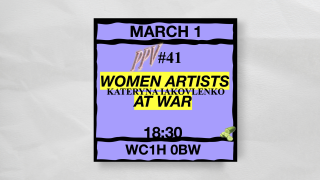
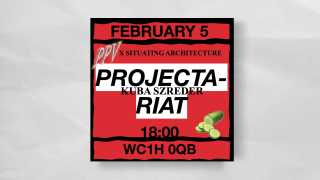
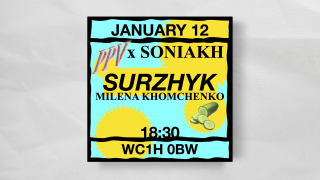
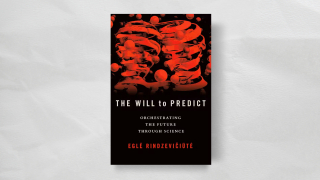
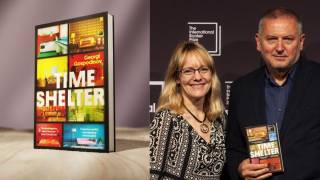
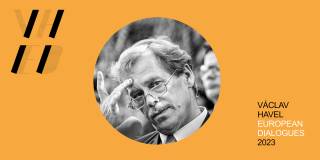
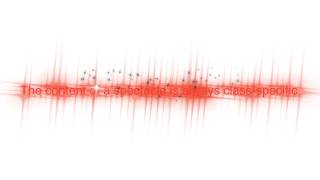
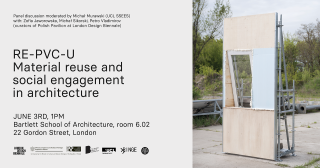
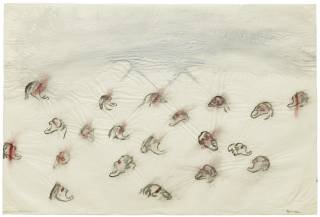
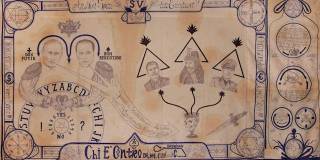
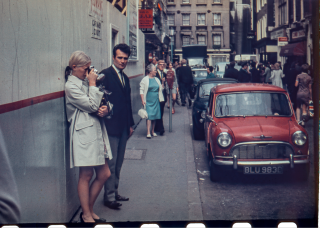
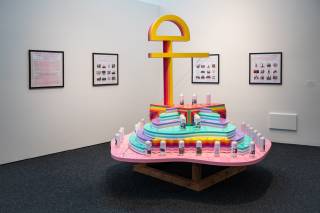
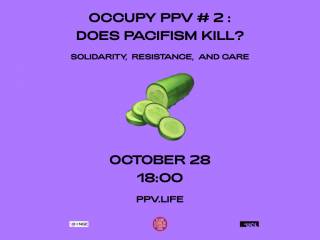
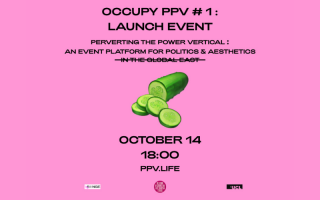
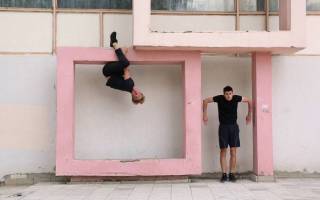
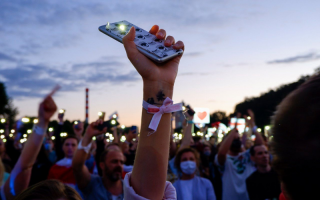
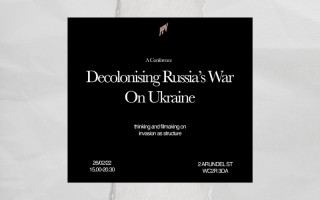
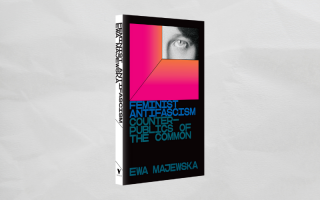
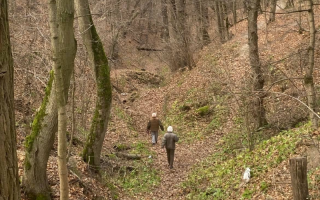
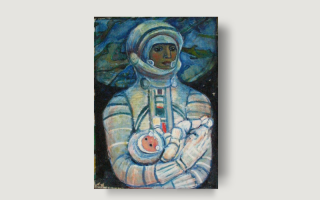
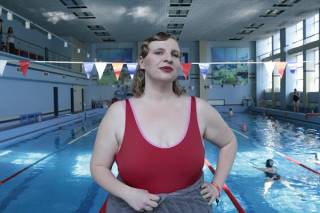

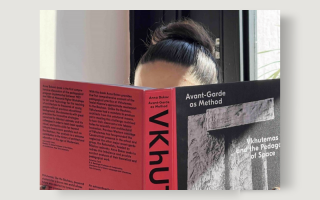
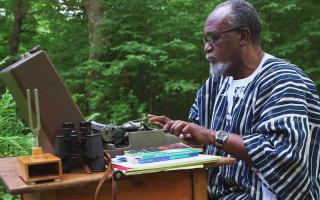
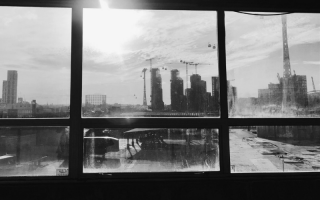
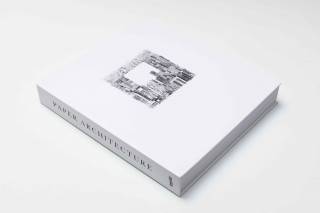
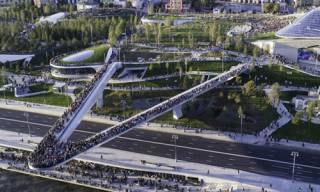 The exhibition emerges from “Zaryadyology", a collaborative research project, carried out by anthropologist of architecture Michal Murawski together with students and staff at the Vysokovsky Graduate School of Urbanism in Moscow. The artists selected to take part in the project have chosen the focus and titles of their works themselves, but they were asked to respond to the work-in-progress results of the Zaryadyological research process.
The exhibition emerges from “Zaryadyology", a collaborative research project, carried out by anthropologist of architecture Michal Murawski together with students and staff at the Vysokovsky Graduate School of Urbanism in Moscow. The artists selected to take part in the project have chosen the focus and titles of their works themselves, but they were asked to respond to the work-in-progress results of the Zaryadyological research process.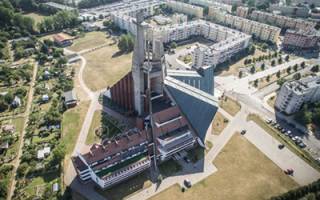
Programme
 Close
Close

